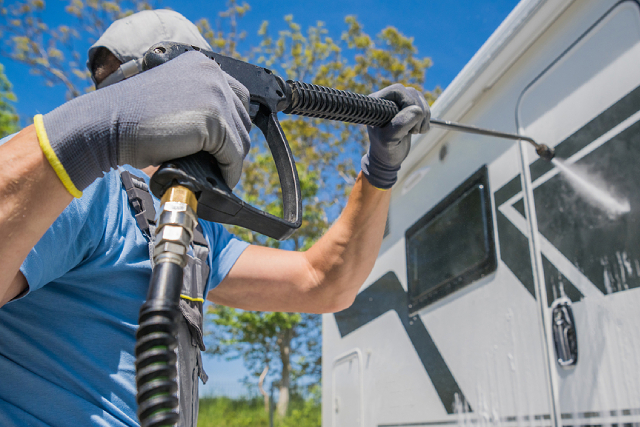Pressure And Soft Wash: Choosing The Right Pump For The Job

When it comes to heavy-duty cleaning, pressure washers and wet and dry vacuum cleaners in Singapore are among the most common tools for the job. But unlike vacuums, pressure washers are more suited for cleaning large and sturdy surfaces such as buildings, roads, and industrial equipment via pressure washing or soft washing. These two cleaning methods share many similarities but the equipment, techniques, chemicals, and pump pressure differ considerably, as discussed in the following sections.
What is Pressure Washing?
Pressure washing or power washing is a method used for cleaning exterior surfaces using a high-pressure water spray that ranges between 1,300-2,800 pounds per square inch (PSI). It effectively removes all kinds of stains and buildup from dust, dirt, mud, mould, grime, paint, and more solely on water pressure and without any use of chemicals.
The force outputted via pressure washing should not be underestimated, as using it on the wrong surfaces brings a high risk of damage. Walls may be stripped of their paint, brick or tile surfaces could lose their grout or mortar fillings, and asphalt may come off during roof cleaning. Hence, pressure washing should mostly be limited to surfaces such as:
- Concrete
- Asphalt roads and driveways
- Garage floors
- Patios
- Sidewalks
- Treated wooden decks
Because of the risk of causing damage, pressure washing is less versatile than soft washing.
What is Soft Washing?
The chemical compatibility of the pump is a significant consideration when choosing a washer system. Soft washing is a method that combines chemicals and water spray outputted through a pump sprayer to clean various kinds of exterior surfaces thoroughly. The sprayer typically generates around 150-300 psi of pressure. The surfactants and cleaning chemicals used in soft washing include algaecides, sodium hydroxide, sodium hypochlorite or bleach, and regular water. Neutralisers are also generally used alongside these chemicals to mitigate the effects of runoff on the environment.
Soft washing is effective against stains and buildup from:
- Rust
- Oil and grease
- Paint spills and graffiti
- Organic matter
- Bugs, bird droppings, and other wildlife debris
- Algae and bacteria
- Weeds and moss
- Fungus, moulds, and mildew
Surfaces that work best for soft washing include:
- Outdoor furnishings
- Windows and doors
- Roofs
- Brick, tile, and pavers
- Wood siding
- Vinyl siding
- Stucco
Choosing a Soft Wash Pump System for Your Application
Soft wash pump systems should ideally output around 6.5 gallons per minute (GPM) at 150 psi. Some may find these numbers surprising when searching for the right pump, believing they need double the amount. However, proper nozzle selection ultimately determines a washer’s output. It is uncommon for operators to use a pump with, for instance, a 10-11 GPM yet pair it with a nozzle that reduces the actual flow to around 5-6 GMP. In short, many only needed a pump around half the size.
This matters because an overrated pump leads to inefficient energy waste, which is increasingly important as more and more equipment transitions to battery power because of various legislations around gas-powered engines. Furthermore, such pumps will be larger, take up more space in a vehicle, and cost more than is necessary for a given application.
Understanding proper pressure and flow rates along with the right muzzle devices ensure operators get in and out of jobs faster. Thus, if a washer’s output is weaker than desired, there will not be enough vertical and horizontal throw. Alternatively, if it is too strong, unintentional damage may occur.
Conclusion
Heavy-duty cleaning and maintenance have become more efficient and swift thanks to pressure washers and the versatility they provide. Regardless of soft or power washing, pressure washers with the right configuration can easily and thoroughly clean any surface that needs to be spotless. When purchasing any machine, such as pressure washers, air compressors, or vacuum pumps in Singapore, it is always best to seek professional advice.

